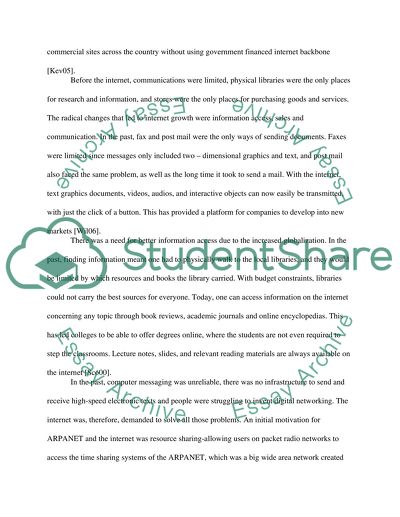Cite this document
(“Advancements in the humanities:Internet Essay Example | Topics and Well Written Essays - 1500 words”, n.d.)
Advancements in the humanities:Internet Essay Example | Topics and Well Written Essays - 1500 words. Retrieved from https://studentshare.org/information-technology/1450158-advancements-in-the-humanitiesinternet
Advancements in the humanities:Internet Essay Example | Topics and Well Written Essays - 1500 words. Retrieved from https://studentshare.org/information-technology/1450158-advancements-in-the-humanitiesinternet
(Advancements in the humanities:Internet Essay Example | Topics and Well Written Essays - 1500 Words)
Advancements in the humanities:Internet Essay Example | Topics and Well Written Essays - 1500 Words. https://studentshare.org/information-technology/1450158-advancements-in-the-humanitiesinternet.
Advancements in the humanities:Internet Essay Example | Topics and Well Written Essays - 1500 Words. https://studentshare.org/information-technology/1450158-advancements-in-the-humanitiesinternet.
“Advancements in the humanities:Internet Essay Example | Topics and Well Written Essays - 1500 Words”, n.d. https://studentshare.org/information-technology/1450158-advancements-in-the-humanitiesinternet.


